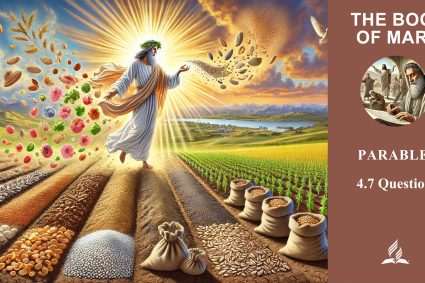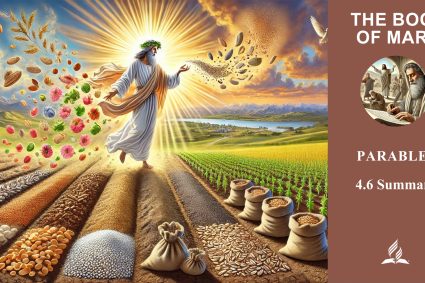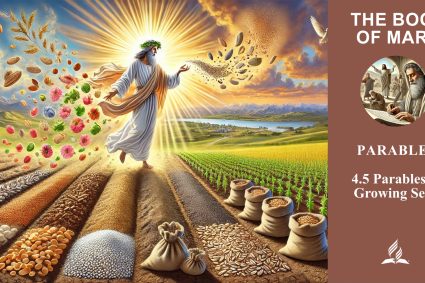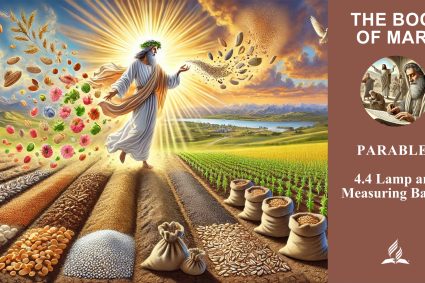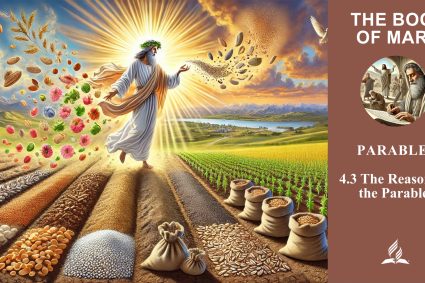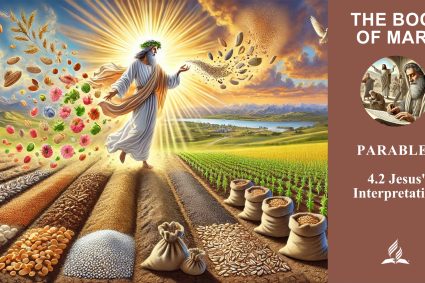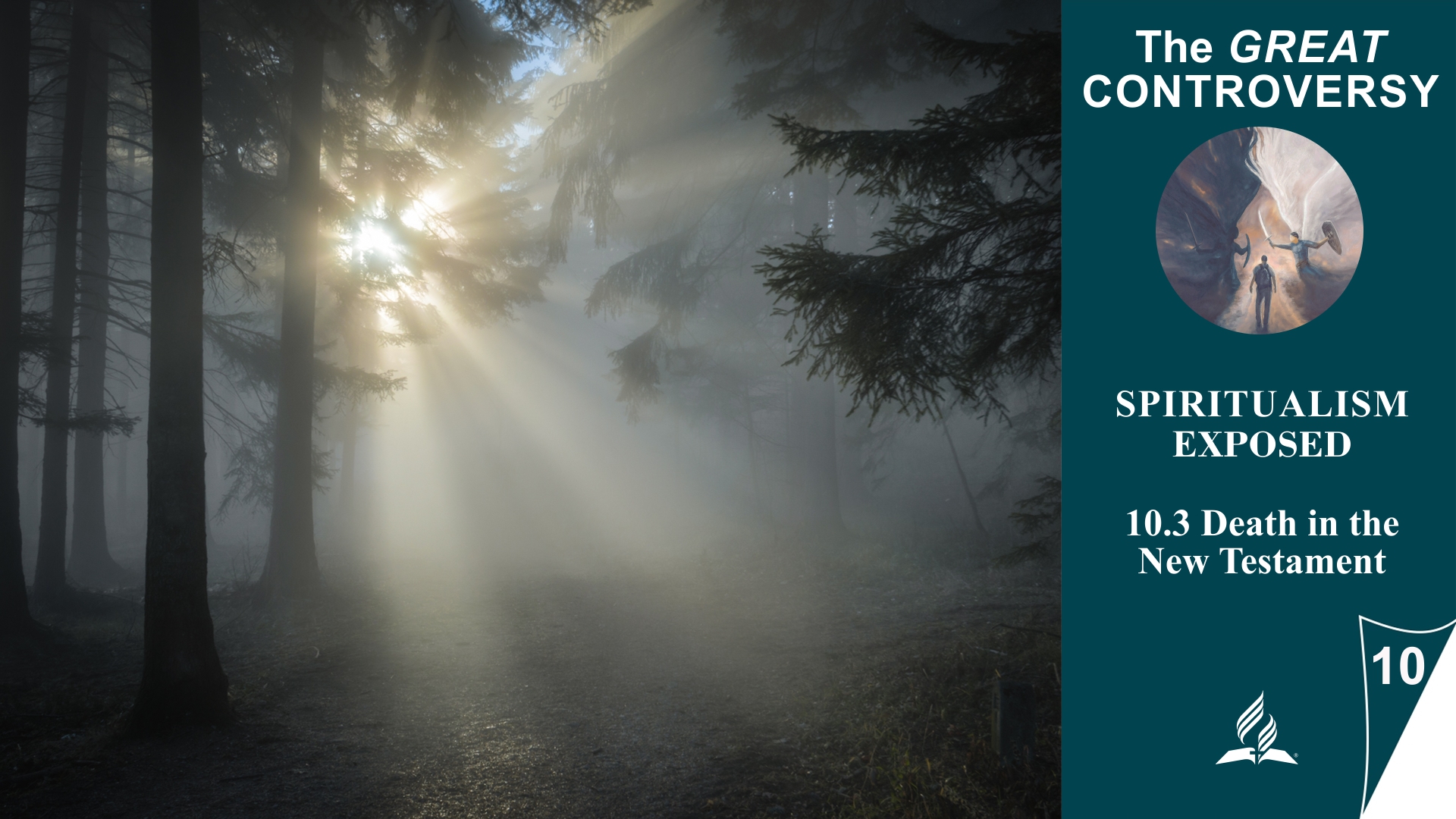


10.3 Death in the New Testament
Hope for Resurrection and Eternal Life in Christ
Read John 11:11-14, 21-25; 2 Timothy 1:10; 1 Corinthians 15:51-54, and 1 Thessalonians 4:15-17. How can the descriptions of death by the authors of the New Testament be compared to those of the Old Testament?
The biblical authors of the New Testament, like their predecessors in the Old Testament, use the metaphor of sleep to describe death. This symbolism emphasizes the state of unconsciousness and the waiting for resurrection. Here are some comparisons and additional insights:
John 11:11-14, 21-25:
-
Jesus describes Lazarus’s death as sleep and emphasizes His power to wake him, symbolizing the resurrection.
-
This view supports the Old Testament perspective of death as a state of sleep and loss of consciousness.
2 Timothy 1:10:
-
Paul emphasizes that Jesus Christ has defeated death and brought life and immortality to light.
-
This statement builds on the Old Testament hope and adds the dimension of eternal life made possible through Christ.
1 Corinthians 15:51-54:
-
Paul speaks of a mystery where not everyone will die, but all will be transformed. This describes the transformation of believers at Christ’s return.
-
This passage highlights the transformation of believers and reinforces the hope of resurrection hinted at in the Old Testament.
1 Thessalonians 4:15-17:
-
Paul describes Christ’s return and the resurrection of the dead in Christ. Believers will be caught up together with the resurrected in the clouds.
-
This reinforces the hope of resurrection and the ultimate reunion with Christ, which the Old Testament addressed as a future hope.
Comparison between the Old and New Testament:
-
Metaphor of Sleep:
-
Old Testament: Often describes death as sleep (e.g., “lay down with his fathers” in 1 Kings).
-
New Testament: Jesus and the apostles use the same metaphor (John 11:11-14; 1 Thessalonians 4:13-15).
-
-
State of the Dead:
-
Old Testament: The dead have no consciousness and cannot praise God (Psalm 6:5; 115:17).
-
New Testament: Confirms this state and emphasizes the resurrection as the awakening from this sleep (1 Corinthians 15:51-54).
-
-
Hope of Resurrection:
-
Old Testament: Hints of resurrection (Daniel 12:2).
-
New Testament: Clear and detailed teaching about the resurrection at Christ’s return (1 Thessalonians 4:16-17).
-
-
Eternal Life through Christ:
-
Old Testament: Expects a resurrection and future life (Job 19:25-26).
-
New Testament: Emphasizes Christ’s role in the resurrection and the gift of eternal life through Him (2 Timothy 1:10).
-
Summary: The Old and New Testaments agree that death is to be viewed as sleep and that there is no conscious existence after death until the resurrection. The New Testament builds on Old Testament teachings and adds the crucial dimension of resurrection and eternal life made possible through Christ. This hope of resurrection at Christ’s return offers comfort and assurance and is a central element of the Christian faith.
Why is the Resurrection such a Strong Hope for the Christian Faith?
The resurrection is a central and transformative truth of the Christian faith, giving it its power and hope. Here are some reasons why the resurrection is such a strong hope for Christians:
-
Confirms Jesus’ Divine Nature: The resurrection of Jesus Christ confirms His divine nature and His power over death. It shows that Jesus is truly the Son of God and that His sacrifice on the cross defeated sin.
-
Gives Hope of Eternal Life: The resurrection promises believers that death is not the final destiny. Through Jesus’ resurrection, they have the assurance that they too will one day rise to eternal life with God.
-
Reconciles with God: The resurrection enables believers to be reconciled with God. By overcoming death, Jesus offers forgiveness and a new life in fellowship with God to those who believe in Him.
-
Provides Comfort in Suffering and Grief: The hope of resurrection offers comfort and hope in times of suffering and grief. Believers can trust that their loved ones who died in faith will one day be resurrected and they will be reunited.
If the cross remained without the resurrection, the hope of the Christian faith would be incomplete and uncertain. The cross alone would not break the power of death or offer the promise of eternal life. Without the resurrection, faith in Jesus Christ would be merely faith in a moral teacher or martyr, without the assurance of forgiveness and new life.
Therefore, the resurrection is an indispensable and very important part of the Christian faith, giving it its hope, power, and certainty. It is the foundation of the Christian faith and provides a basis for the relationship with God and the hope of a fulfilled and eternal life.

The resurrection is not just an abstract theological doctrine but has direct impacts on our daily life and faith:
-
Hope and Comfort in Times of Grief: The hope of resurrection gives us comfort and confidence, especially when we face the loss of a loved one. We can be sure that death is not the final end and that we will see our loved ones again.
-
Motivation for a Purposeful Life: The certainty of the resurrection encourages us to live our lives in accordance with Christ’s teachings. We strive to do good and honor God, knowing that our life is not limited to this earthly existence.
-
Overcoming Fear of Death: The resurrection gives us the assurance that death is not the final destiny. We can overcome the fear of death and live with confidence and peace, knowing that we have eternal life in Christ.
-
Faith in God’s Power: The resurrection of Jesus Christ testifies to God’s immeasurable power over death. This conviction strengthens our faith and our trust in God in all areas of our lives.
-
Future Hope and Perspective: The prospect of resurrection gives us a perspective for the future. We live in the hope of eternal life with God and align our lives accordingly.
Without the resurrection, the Christian faith would be meaningless, as it forms the foundation of our faith and gives us the hope of a fulfilled, eternal life with God. The resurrection is therefore an integral part of our faith that shapes us in all areas of life and encourages us to live in accordance with God’s will.

The resurrection is the foundation of our faith and the source of our hope for a fulfilled and eternal life with God.
Visited 31 times, 1 visit(s) today

